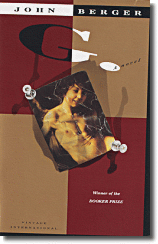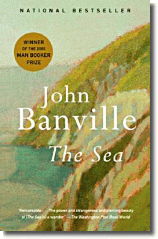
Holroyd contends that the first big leap in getting the book-reading public to care about the Booker Prize was the result of
provocative speeches made by its winners, who criticised Booker for its business ethics. When John Berger’s G won in 1972, he handed half his prize to the Black Panthers and attacked Booker for “sweating blacks” in the West Indies.Holroyd would later urge Michael Caine, the chairman of Booker McConnell and sponsor of the prize, to award the losers on the shortlist a modest monetary prize. Holroyd tried to appeal to Caine's sense of justice and even implied he was miserly. Caine didn't buy it.
"Do you know, Michael,” he asked, “why the Booker Prize is so successful?” I murmured something about its similarity to the Prix Goncourt in France, but he raised his hand and silenced me. “They love it,” he said, “because it’s so unfair!”If only more American readers and writers cared so much about, say, the Pulitzer Prize to worry about whether it was unfair.
Click here to read the full Holroyd article.

Last year's winner of the Man Booker Prize was The Sea by John Banville.
Other Booker-related posts on the blog include:
Martyn Goff, the (now-retired) administrator of the Booker Prize since 1969, thought the 1980 prize went to the wrong nominee.A few days ago Middlemiss was bold enough to predict which titles would make the Man Booker shortlist. Click here to see what he came up with.
An Australian academic thought that the judges usually got it right.
Australia's preeminent Booker-watcher, Perry Middlemiss, wrote up a very smart argument for why Kingsley Amis was probably the worst choice for the prize in 1986.
Michael Holroyd was mentioned recently on the blog: I disagreed with his opinion on which writer, Shaw or Shakespeare, would be more useful in the post 9/11 world. Click here to read more about the question.
--Marshal Zeringue





